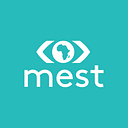Preparing Africa for the Digital Revolution
This post was written by Hendrina Chalwe Doroba, a Manager of the Education & Skills Development Division at the African Development Bank Group, and a panelist at the 2019 MEST Africa Summit.
The digital revolution means many things to different people, but at the heart of it, there is a general consensus on the immense benefits it brings. From agriculture, to education, to social justice, the digital ecosystem is now an integral part of every sector, contributing to rapid growth of forward-looking countries.
Like most revolutions in the past, the digital or Fourth Industrial Revolution brings promises of lifting many out of poverty, better and accessible healthcare, smarter civil engagements and much more. However, to reap these projected benefits, there must be concerted efforts to build a culture of integration amongst relevant stakeholders such as governments, international bodies, civil society/NGOs, academic institutions, private sector and policy makers. This joint effort is critical to building a vibrant digital economy and workforce that is well positioned for the required growth.
But…. how do we build this vibrant digital workforce?
The African Development Bank, through its various initiatives, recognizes the importance of educational institutions in developing a digital workforce and has made numerous investments across the continent with a keen eye on youth and ensuring a healthy representation of women. Youth are at the core of this growth and as such African governments must endeavor to invest in educating its work force in preparation. One of the key considerations is the decision to revamp national curriculums in a bid to prepare the future workforce for this digital revolution, while another school of thought aligns with the idea that parallel-learning pathways that supplement existing curricula is the way to go.
Regardless of whatever options are adopted at a national level, intentional interventions need to happen fast to consolidate on potential results and build capacity of the next digital-ready workforce.
From drones delivering medical supplies to remote areas in Rwanda to the use of virtual reality to deliver quality educational experiences in Nigeria, the direct impact of improving quality of lives is immense. It is time for proactive engagements among stakeholders. Government should provide enabling infrastructure, and policy makers should reassess and realign policies to better position the continent for greatness. In addition, NGOs and civil societies should also engage at the right levels and the collective progress we will experience will not be too far off.
The African Development Bank Jobs for Youth in Africa Strategy
The African Development Bank is playing its part through a strategic 10-year plan known as the Jobs for Youth in Africa strategy, which aims to support African countries vis-à-vis scaling up responses to the youth unemployment and underemployment crisis on the continent. This will be achieved through practical, high-impact solutions aimed at creating opportunities via education and training, transformative jobs and a business environment conducive to entrepreneurial activities (i.e. youth entrepreneurship).
One of the areas of the Bank’s focus in the strategy is the Coding for Employment program, which aims to equip 50 million youth with employable skills and create 25 million jobs in agriculture, information communications and technology and other key industries across Africa.
We believe that Africa is the next frontier for this revolution and there is no other better time than now to invest in its future.
About Hendrina
Hendrina Chalwe Doroba is a Manager of the Education & Skills Development Division at the African Development Bank Group. She believes that “increased investment in education, science, technology and innovation must be at the core of the African Agenda for transforming Africa’s education and training systems to unleash the full human potential of the continent.”
Contact: h.doroba@afdb.org
